By Les Tan, Dawn Yip and Jan Lin

Teo Ser Luck takes a publicity ride through the heart of town in 2006 for the Ironman 70.3 Singapore event. (Photo 1 © Les Tan/Red Sports file photo)
Teo Ser Luck is the Senior Parliamentary Secretary for the Ministry of Community Development, Youth and Sports and the Ministry of Transport.
Before joining politics, he was in the private sector and his last position was as General Manager of DHL Express Singapore.
An Ironman triathlete, Ser Luck, who turns 41 on June 8th, has championed the role of sports, especially for the masses.
When the topic seizes him, Ser Luck also writes an occasional column for Red Sports.
Red Sports caught up with him for an exclusive interview.
Part 3
Red Sports: Looking back at all the sports you've done in school, what will you say were your highlights?
Teo Ser Luck: The first medal, the first trophy. The one where there were two persons or two teams and I came in second. It motivates you, you see, just to be able to represent your school. Secondly, that you win a trophy and you are ranked and you go out there, doesn't matter if you are last. These little things help, giving everybody a chance to do sports.
RS: Yes you once mentioned that that is your focus – trying to give people opportunities to play. Do you think there are structural barriers to people participating in sports?
TSL: Yes, there are still barriers. If you continue to rank and schools continue to focus on winning the medals and getting that point, that's what's going to happen. You will only focus on your elite athletes and you forget about the rest. Then you won't give the rest a chance to enjoy sports and to learn the value of sports.
So, schools right now – I look at some of the elite schools in sports, they are so focused on their top athletes in all the different sports and they want to win the medals so badly. First they hire the foreign coach, they may just bring in the foreign students just for that, and that's scary.
I think that the school is the only place where you can really truly develop our locals whether it is for performance or just for participation. I feel that for schools, the best is: Don't focus so much on winning. Focus on building your base. If you have a broad enough base, you will have enough talents for the pipeline and you will be able to win medals.
That's why I got the best experience of high participation in Victoria (School) because Victoria allows everyone to play a sport. So my classmates were not good in shot put, but they still get a chance to throw a shot put because there was this programme where they say, ´Come guys, come to this track and field programme and then do the different (events), do hurdles…'
The teachers put so much effort to set it all up for different classes of students to come and try out – not just for the elites – to let them learn, get them to do long jump, high jump…
RS: Does this tradition still continue to this day in Victoria?
TSL: I think some sports but maybe not track and field. There were a few guys like Ratnam Pierre (sic), Susie Raj, Goh Teck Chong, Lim Su Ping, (they) were passionate sports individuals that actually designed all these programmes, way before we talked about SEP (Sports Education Programme). Way before, people were already doing it.
We've got all these passionate individuals out there. You know, all this is extra work. They don't need to do that, right? They just need to prepare the school team and go and compete, get a medal and the principal praises you. But they didn't. They believe in giving every child a chance.
I remember we always played soccer at the basketball court. Without fail, recess time and before school begins, we get sweaty and sit in class, under the fan. Some teachers were so nice, they will say, ´You guys went to play right, ok, ok, group around under the fan and sit around there', and then we will all sit around there and listen to the teacher. That's us. That's why I've always felt indebted to Victoria for that, for giving me that mindset.
RS: What's your worst sporting moment in your youth? Or biggest challenge you've faced?
TSL: Actually I've never had a worst sporting moment. Every time I'm in sports, I'm so happy.
TS: Apart from being sent to the girls' team…?
TSL: Yes, that could be a worst sporting moment! But I still continued a while more, I just followed the guys' softball team to their competitions and then sparred with the girls. I never had a chance to play so I just followed, just happy following the school softball team.
You want to find self-worth. I wasn't a top student at that time, you know. I was still growing up, still finding direction. You just have to find something.
That's why I feel for the students at Northlight, I feel for them. I feel for the students in ITE, I feel for the students in the neighbourhood schools. I feel they can be given a chance. Everybody has a talent. You just have to give them that platform.
That's why I'm so happy about MOE's direction now, they give everybody a chance…you fail twice, it doesn't matter. They will just give you a chance to continue. Some will succeed with the express stream, some with the normal stream, but never give up. You will never know. Don't let other people assess you, you assess yourself and be confident, then you will get somewhere. You have to believe in yourself.
RS: MOH is somewhat concerned about the obesity level amongst students. Do you think the schools can do more in terms of giving kids opportunities to play?
TSL: It will help if you give kids opportunities just to play. That may help to reduce some of that, plus I would say the food and the nutrition, to learn about that. Sports is one way, NS (National Service) is the other one. I did see some guys go in and then come out really changed – their form, shape, size.
But the awareness of the nutrition and the food, it is really important. There is so much temptation in Singapore you know. It's quite difficult to change their eating habits but they have to. It's quite a worrying trend, but we have to start very young.
Last time we had more of a problem of under-nourished than obesity. I remember I had to drink milk, like the banana flavour and strawberry. If you are too small, too thin, you have to drink the milk and if you don't have money to pay for that, the teachers see you are too small, they will give it to you free.
We never had problem of people being too fat. Maybe people are too comfortable now. But if they want to play sport, then it must be out of fun. I don't know how sports are being taught, I know that sometimes… there are many complaints, that children don't have the chance to do that (sports) and so they do something else like cybergames.
So if we don't give a chance for them to play sports then obviously things will go down, they will be obese. High chance they will be obese, put on weight and all that. No focus, no discipline.
RS: Seng Kang Primary School is the only primary school, as far as we understand, that has PE every day…
Yes everyday PE. And they have such a system where it is a bottom-up approach. They ask the students what they want. So their uniform, you know what? Their uniform is actually the PE shirt! Fantastic.
I was going to send my daughter there already, but my son is in Rosyth. Rosyth now has a sports-for-all programme, so it’s fantastic. He's not good at any sports but he loves sports, so he gets to play badminton, he gets to play rugby. Fantastic.
But if you're asking me how come it’s only Seng Kang, you got to ask MOE. If I have the chance, I will begin to ask MOE about the ranking, because if you start promoting performances, like how many medals you won and the papers start featuring always the winners, then that's always going to happen.
That's why I like Red Sports. I like you guys so much because you tell the human interest story.
It's the same for NSAs. If I give them funding just because they get more medals, I think it's not fair then they are so skewed to high performance. They are not going to promote their sport to the masses and then what happens is that you will see some sports getting more funding than the rest. Why? Some sports only get one medal because they have 11 players (and a lot of funding), some sports get many medals (but less funding). I'm determined to change that, as long as I'm here.
Look out for Part 4
REDpoll
Related posts
"JC life was quite interesting, that was where I met my wife." An interview with Teo Ser Luck (Part 2)
"I think you join the girls," a primary school softball coach once told Teo Ser Luck (Part 1)
“You bring the foreign talent in and then you compete.” An interview with Teo Ser Luck (Part 4)

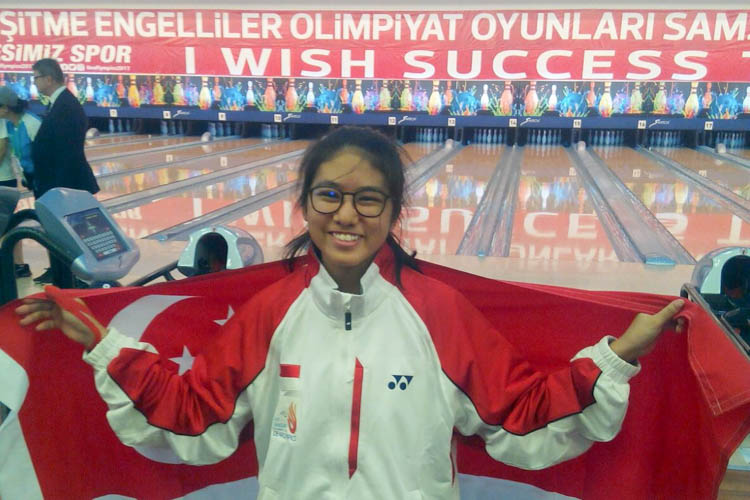
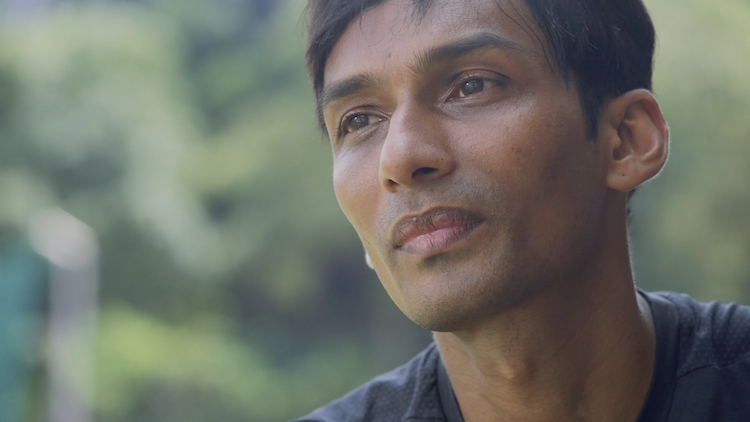
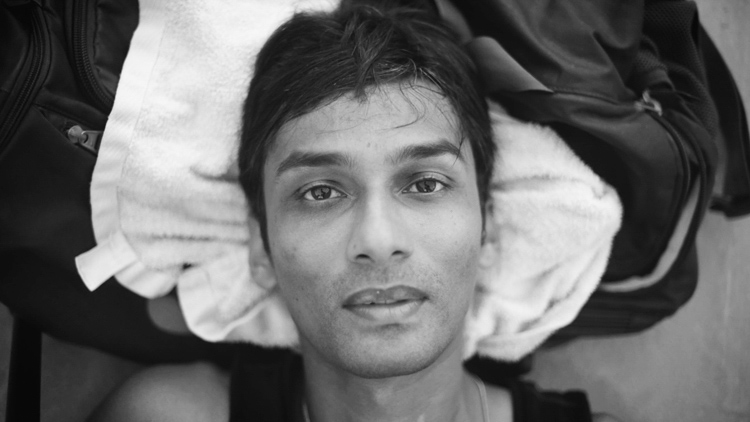
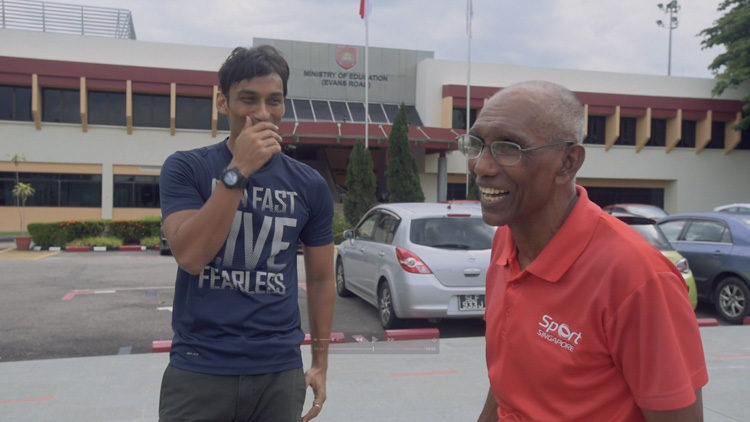
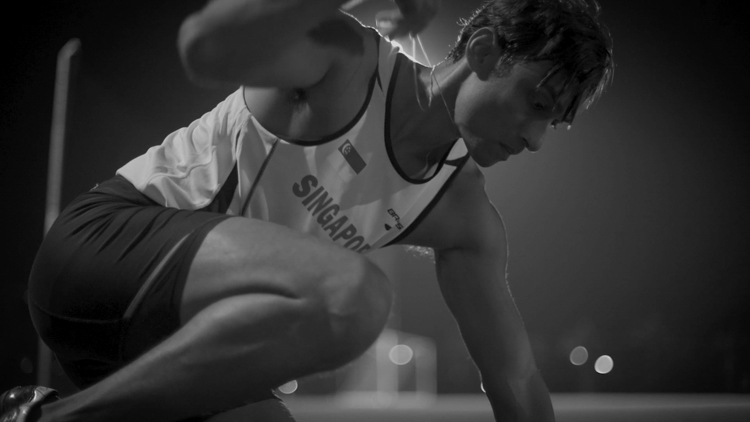
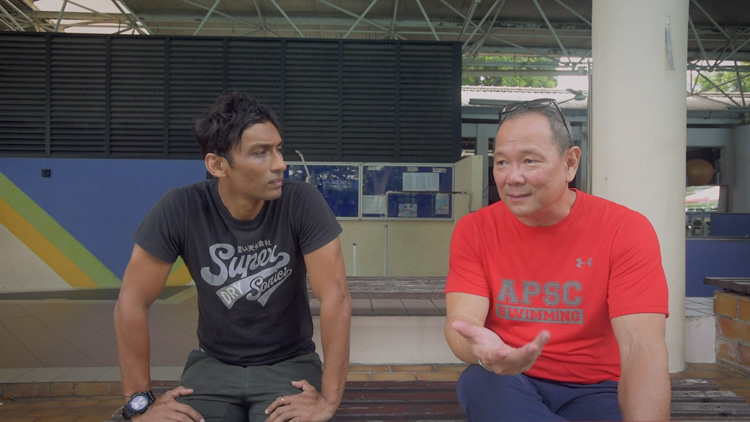
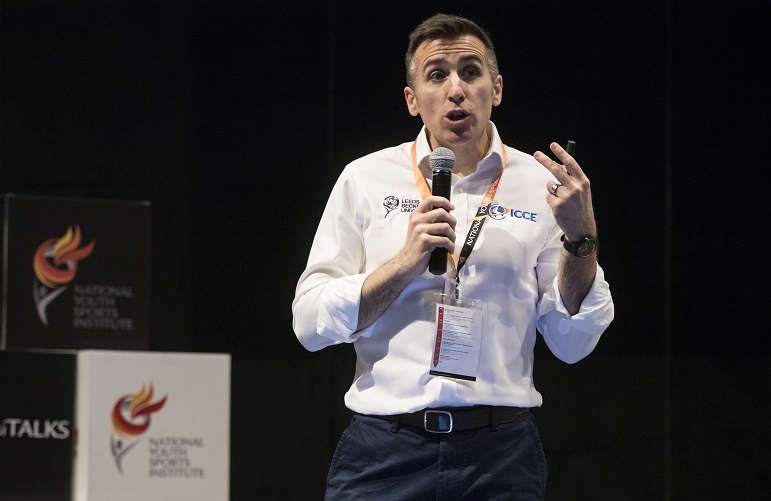
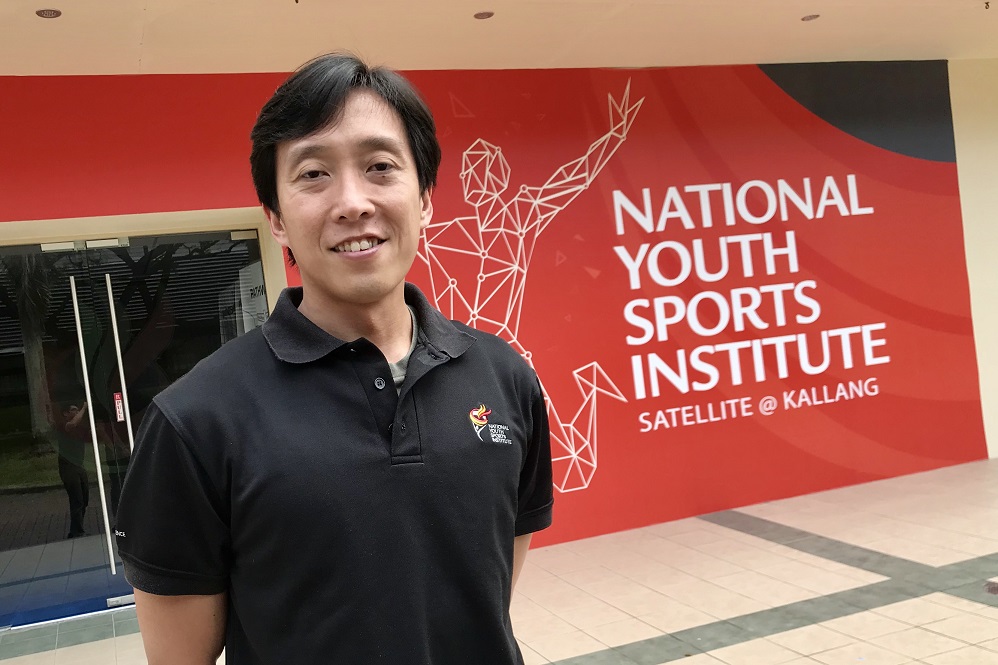
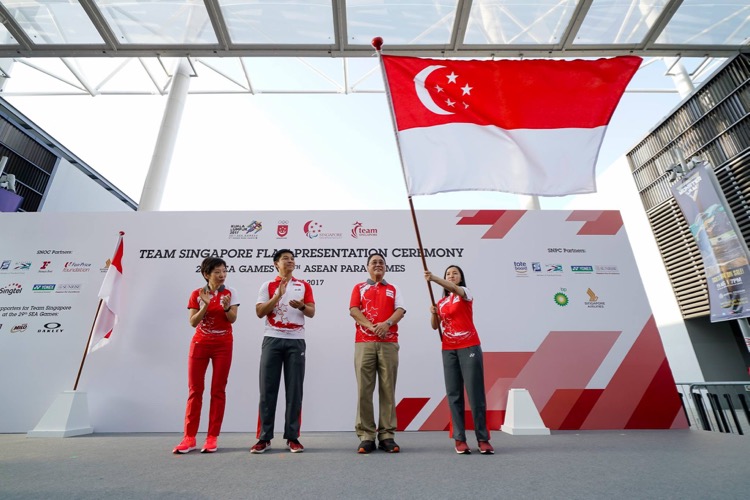
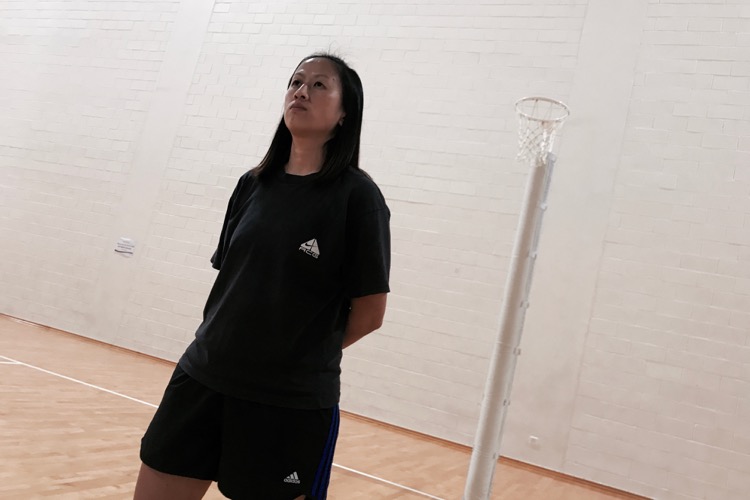
[…] think you join the girls,” a primary school softball coach once told Teo Ser Luck (Part 1) “I feel that for schools, the best is: Don’t focus so much on winning.” An interview with … Share this […]
I like what Mr Teo is saying.
He’s not saying drop the elite sports, or stop trying to win… but really to have consideration for all students, who should be given the opportunity to play games and sport.
We think that Singapore sports cannot make it because we are such a small country, thus need to hire foreign talent. But the thing is, there are many other countries with 4 million population who do well in sports, because the ‘broad base’ Mr Teo mentions has been built up.
The sad fact is most of the people only want to support the winners.
Just compare the number of students going down to support their school during the finals and during the preliminaries.
It is common sense that if a certain school is excelling in the sport – the school will want to continue excelling in it. Nobody wants to stop winning. No team would want to be the team that lost the title their seniors won.
There is no one to blame for such a mentality – it is only human nature.
As a long time physical education and sports teacher and coach, my friends in the PE fraternity and I have worked under enormous pressure and high expectations from within our own schools/JCs and from without[ MOE’s awards, rankings, elite funding,performance reviews, etc..]. We have not only witnessed the many twists and turns, over the last 4 decades, in MOE’s ever-changing landscape but experienced the very same kind of feelings you have expressed so well here. Kudos!
The over-focus on elitism versus giving every school kid the same chance of picking up a sport and being taught well and developing their talent to a higher level…has been discussed and debated for a long time…, with the elitist approach winning hands down in more recent times.
The School Rankings and various AWARDS systems is the MAJOR contributor to this unhealthy, lop-sided approach to PE and school sports today. In the end, it is the ordinary kid in school who may be your son or daughter, who must be among the vast majority of our Singapore student population who will have to suffer and endure this inequality in attention.
The need for a COMPREHENSIVE review has long been overdue!
Hi Mr Teo,
Pls check with MOE why the pressure to succeed in the Sports where you have attained Niche Status rather than the emphasise on pervasiness of the Sport in the School. The emphasis should be more on developing programmes to sustain the sport rather than on winning as the criteria to decide whether to continue the Niche Status Funding.